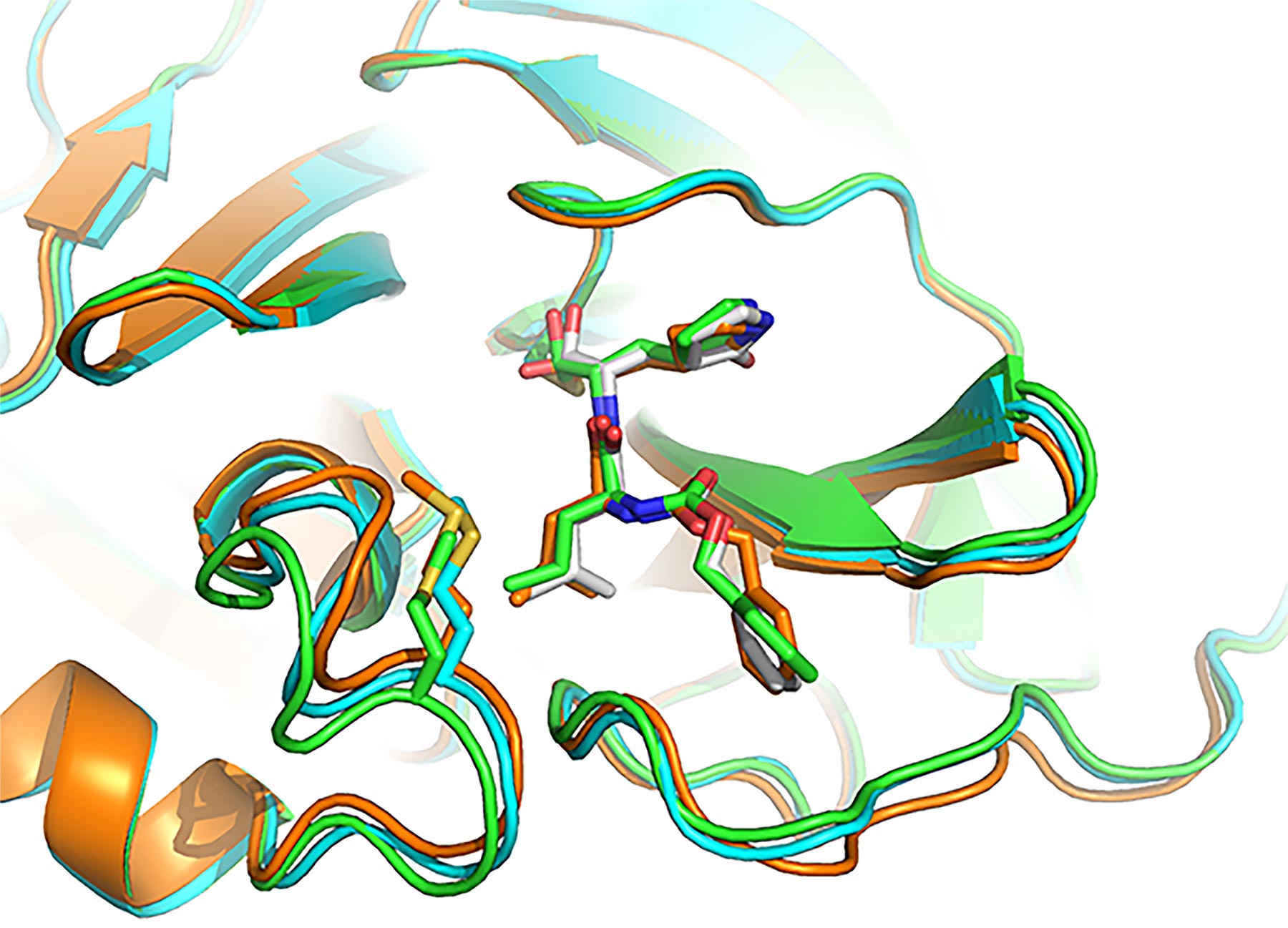
Three configurations of active sites where inhibitor GC-376 binds with the COVID-19 virus’s main protease (drug target Mpro), as depicted by 3D computer modeling.
Credit: Image generated by Yu Chen, University of South Florida Health, using X-ray crystallography.
Four promising antiviral drug candidates identified and analyzed by a University of Arizona-University of South Florida team in the preclinical study.
University of South Florida Health (USF Health) Morsani College of Medicine scientists recently worked with colleagues at the University of Arizona College of Pharmacy to identify several existing compounds that block replication of the COVID-19 virus (SARS-CoV-2) within human cells grown in the laboratory.
Yu Chen, PhD, an associate professor of molecular medicine at the University of South Florida Health Morsani College of Medicine, has turned his with expertise in structure-based drug design toward looking for new or existing drugs to stop SARS-CoV-2.
Credit: © University of South Florida Health.
The most promising drug candidates – including the FDA-approved hepatitis C medication boceprevir and an investigational veterinary antiviral drug known as GC-376 – target the SARS-CoV-2 main protease (Mpro), an enzyme that cuts out proteins from a long strand that the virus produces when it invades a human cell.
This enzyme had already been validated as an antiviral drug target for the original SARS and MERS, both genetically similar to SARS-CoV-2.
Chen applied his expertise in structure-based drug design to help develop inhibitors (drug compounds) that target bacterial enzymes causing resistance to certain commonly prescribed antibiotics such as penicillin.
University of South Florida Health doctoral student Michael Sacco worked with Dr.
Chen to determine the interactions between antiviral drug candidate GC-376 and COVID-19’s main protease.
Credit: © University of South Florida Health.
Mpro represents an attractive target for drug development against COVID-19 because of the enzyme’s essential role in the life cycle of the coronavirus and the absence of a similar protease in humans, Dr.
The four leading drug candidates identified by the University of Arizona-USF Health team as the best (most potent and specific) for fighting COVID-19 are described below.
Visualizing 3-D interactions between the antiviral compounds and the viral protein provides a clearer understanding of how the Mpro complex works and, in the long-term, can lead to the design of new COVID-19 drugs, Dr.
In the meantime, he added, researchers focus on getting targeted antiviral treatments to the frontlines more quickly by tweaking existing coronavirus drug candidates to improve their stability and performance.
